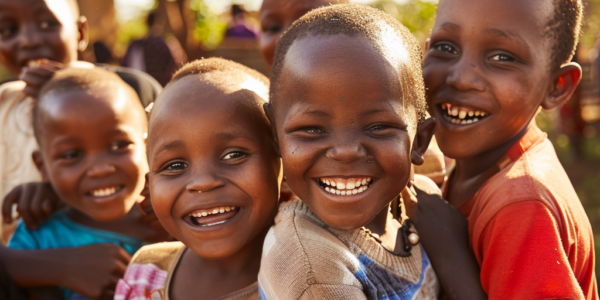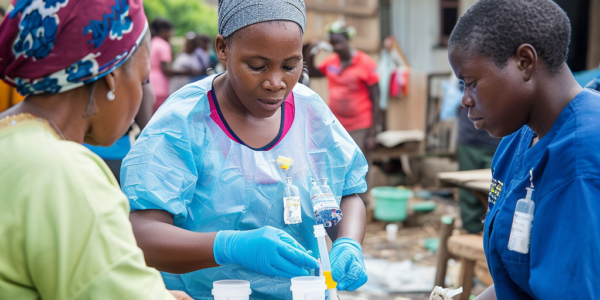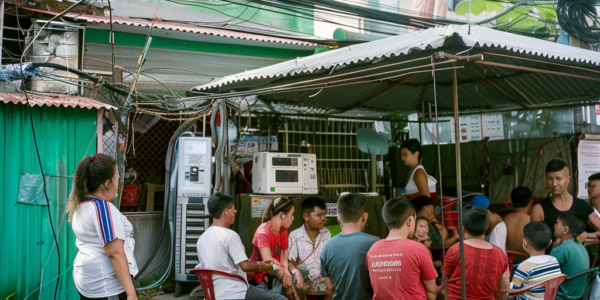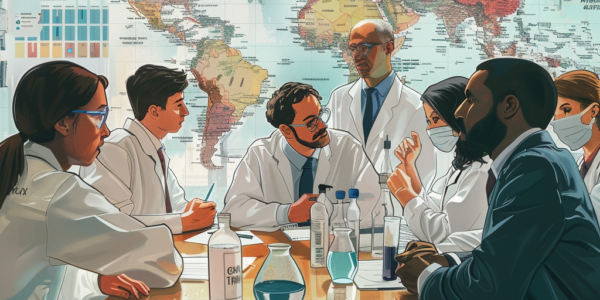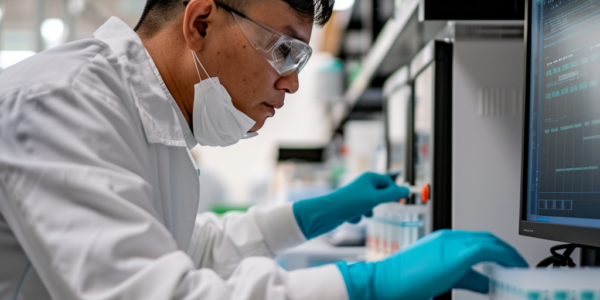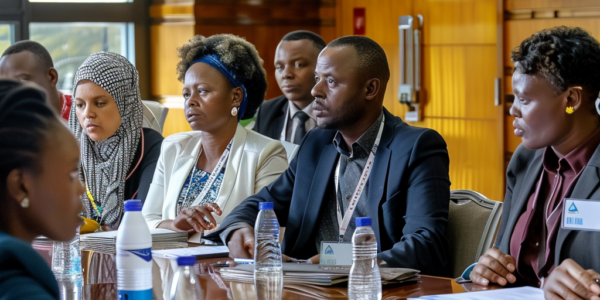WHO to Launch Global Technical Consultation Report on Pathogens Transmitting Through the Air
The World Health Organization (WHO) is launching a global technical consultation report on proposed terminology for pathogens that transmit through the air. The webinar aims to establish a unified language for describing the transmission of air-borne pathogens that can lead to human infection. Experts from various disciplines and major public health agencies will participate in outlining the updated terminology and addressing technical questions. Registration is open for this important event led by the WHO Chief Scientist.
WHO Launches CoViNet to Monitor and Evaluate Coronaviruses
The World Health Organization (WHO) has launched CoViNet, a new network focused on identifying, monitoring, and evaluating SARS-CoV-2, MERS-CoV, and emerging coronaviruses. This global initiative aims to track virus evolution, spread of variants, and their impact on public health, emphasizing a ‘OneHealth’ strategy. The network will also contribute to shaping WHO policies and ensuring global health strategies are based on the most up-to-date scientific insights.
LifeArc and FIND provide 7.8 million U.S. dollars to support Kenya’s fight against visceral leishmaniasis
Two international health charities, LifeArc and FIND, have announced a funding support of 7.8 million U.S. dollars to bolster Kenya’s efforts to eliminate visceral leishmaniasis, a fatal vector-borne disease also known as kala-azar among children. The funding aims to improve the diagnosis and treatment of the neglected tropical disease among children in Kenya. Visceral leishmaniasis is a parasitic disease found in marginalized parts of Africa, affecting mainly children and being fatal in over 95 percent of cases if left untreated. The disease, caused by parasites spread by sandflies, affects internal organs and presents symptoms such as weight loss, and enlargement of the spleen and liver. The funding from international charities is expected to help Kenya improve community awareness and enhance the capacity of local health facilities to conduct faster diagnosis and treatment of visceral leishmaniasis. The initiative is targeted for elimination by the World Health Organization (WHO) by 2030, and strategic partnerships are emphasized to boost the elimination of kala-azar.
Global Deployment of Rapid Diagnostic Tests to Boost Fight Against Cholera
The global deployment of over 1.2 million cholera rapid diagnostic tests to 14 countries is a significant step in the fight against cholera. This initiative aims to enhance outbreak detection, improve vaccination campaigns, and support national cholera control and elimination targets. The program, funded and coordinated by Gavi, the Vaccine Alliance, with procurement and delivery led by UNICEF, is a collaborative effort involving several partners. The long-term sustainability of the program depends on successful fundraising for Gavi’s next strategic period, spanning from 2026 to 2030.
Cutting-edge technology used to fight tuberculosis in crowded Manila neighborhood
Cutting-edge medical technology is being used in Manila to combat tuberculosis, the planet’s top infectious killer. A portable X-ray machine and artificial intelligence program are used to quickly detect potential cases, followed by rapid testing to determine appropriate treatment.
WHO Launches CoViNet: A Global Network for Coronaviruses
WHO launches CoViNet, a global network for coronaviruses, aimed at early detection, monitoring, and assessment of SARS-CoV-2, MERS-CoV, and other novel coronaviruses. The network comprises 36 laboratories from 21 countries across all six WHO regions, emphasizing a One Health approach to monitor and assess coronavirus evolution and spread. The data generated through CoViNet’s efforts will guide WHO’s global health policies and tools.
WHO Calls for Urgent Action on Rising Prevalence of Neurological Conditions Worldwide
The World Health Organization (WHO) has called for urgent action to address the rising prevalence of neurological conditions worldwide. A recent study published by The Lancet Neurology revealed that in 2021, over 3 billion individuals globally were living with a neurological condition. The study emphasized the urgent need to scale up targeted interventions to ensure that individuals living with neurological conditions can access quality care, treatment, and rehabilitation. It identified the top ten neurological conditions contributing to health loss in 2021, including stroke, neonatal encephalopathy, migraine, dementia, diabetic neuropathy, meningitis, epilepsy, neurological complications from preterm birth, autism spectrum disorder, and nervous system cancers.
WHO Releases Updated Guidelines for Rapid Tuberculosis Diagnosis
The World Health Organization (WHO) has released the latest edition of the ‘WHO consolidated guidelines on tuberculosis: module 3: diagnosis: rapid diagnostics for tuberculosis detection, third edition.’ This new document includes updated recommendations on the use of targeted next-generation sequencing (NGS) tests for the diagnosis of drug-resistant tuberculosis (TB), replacing the previous edition issued in 2021. The release of these resources underscores the WHO’s commitment to addressing the global burden of tuberculosis and enhancing diagnostic capabilities.
Study Shows Investing in Tuberculosis Prevention is a Sound Economic Decision
Investing in tuberculosis screening and preventive treatment can yield significant health and economic benefits, with a potential return of up to US$ 39 for every dollar invested. The study’s findings provide a compelling investment case for scaling up TB screening and preventive treatment, aligning with the targets set at the 2023 UN High-Level Meeting on TB. The study aims to empower countries to advocate for increased resources and support the expansion of TB control and prevention efforts, serving as a blueprint for similar settings with comparable epidemiological contexts.
Global Initiative to Combat Yellow Fever Epidemic Takes Significant Step Forward in Addis Ababa
The Eliminate Yellow Fever Epidemics (EYE) has concluded its 7th Annual Partners’ Meeting in Addis Ababa, marking a significant step in the global initiative to combat the yellow fever epidemic. The meeting provided a platform for countries, particularly those at high risk like Ethiopia, to exchange vital information on yellow fever vaccination techniques. Ethiopia is set to implement a new nationwide immunization program aimed at significantly increasing vaccine availability, especially for those with limited access and resources. Addis Ababa is expected to receive substantial financial support of up to $25 million from Gavi over a five-year period, with Ethiopia contributing a portion of the funding.



